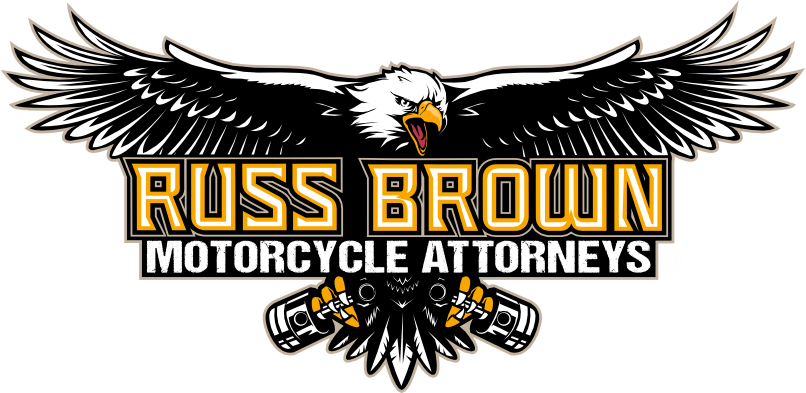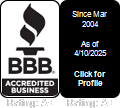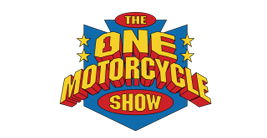Bo Jones comes off as a guy just living his life, which is true enough. But to be a motorcyclist after losing both legs and nearly an arm in combat is far from run-of-the-mill existence: you have to really want it to get back on the road after that. But Bo had been riding motorcycles since childhood, graduating up to riding the streets at only 16 years old, so it was something huge to give up after an explosion in Afghanistan changed the trajectory of his life.
That’s really an oversimplification though. Surviving that kind of trauma involves hundreds of surgeries and getting used to a perpetually unknown outcome. In the face of years of that, anyone can start focusing on just surviving. But of course, surviving isn’t living. And for Bo, living means riding.
It took a network of friends to help put together a custom trike so he could get back out in the wind where Bo feels happiest, and he still has plans to keep hot-rodding the machine in search of more thrills. I spent some time asking him about his introduction to motorcycles, his time in the military, and what brought him back to the motorcycle life.
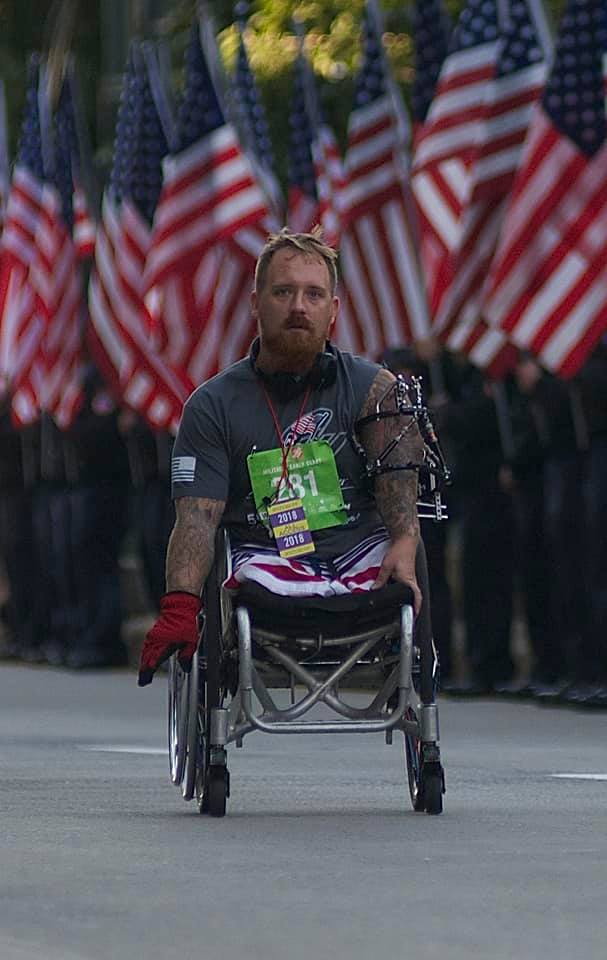
Russ Brown Motorcycle Attorneys: So what got you into motorcycling originally?
Bo Jones: My dad, probably. I mean, he was always into motorcycles and so I had dirt bikes and that kind of thing since I was five or six.
Russ Brown Motorcycle Attorneys: What kind of bikes was your dad into mostly?
Bo Jones: Harley-Davidson’s. He had a lot of different bikes and projects but it was mostly Harley’s.

Russ Brown Motorcycle Attorneys: And so what about the military? How’d you decide to join, and where and when did you serve?
Bo Jones: I just wanted to serve. I was just kind of getting into trouble anyway and it seemed like a good option, and I wanted to serve my country. So in 2010 I went to Fort Benning, Georgia for my infantry training and was posted to Fort Wainwright in Alaska. On February 7th, 2012 I was on patrol in this little village in Afghanistan. I think I was about fifth in line and I stepped on a bomb. It blew me in the air and I ended up landing in the bottom of a well.
My left arm was pretty much ripped off, and both my legs. Our medic, Kelton Thebeau, ran over and dove in and started working on me, while two EOD [Explosive Ordinance Disposal] guys dropped in with him and they all started putting on tourniquets and splints. It was about 15 feet down and there was a bag with like fifteen mortars in it I had been carrying, so they took a big risk.
The Air Force PJ’s [Para-rescue Jumpers, the Air Force’s special forces who have a tremendous focus on life saving] choppered me out and took really good care of me. I was in Kandahar, then Kabul, and spent about seven days in a coma in Germany before ending up at Brook Medical Facility in San Antonio [Texas].
[The conversation moves through several minutes of explaining the surgeries involved and the years of recovery to save Bo’s left arm, though the elbow is fused and gives no range of motion].
Yeah my arm kinda looked like it was chewed up with a chainsaw, but now I’ve been through welding school and have a job at Box Wheelchairs, building custom chairs.
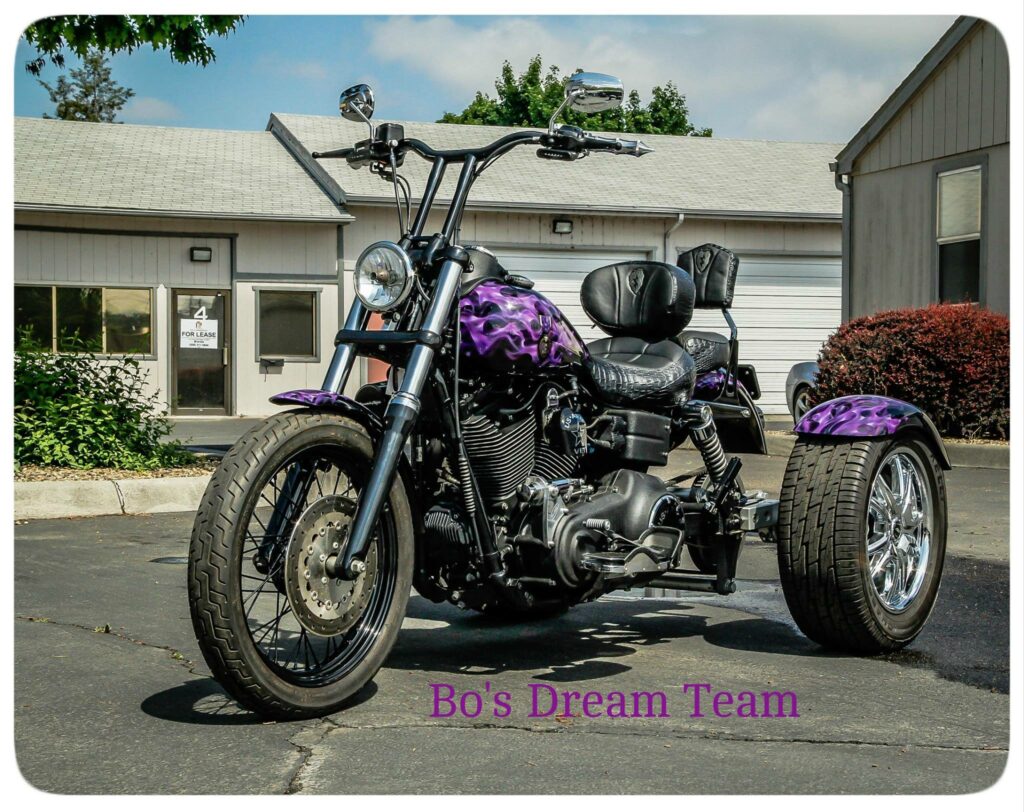
Russ Brown Motorcycle Attorneys: So how did the [trike] come along? Was that something you custom built yourself or was it already converted?
Bo Jones: Nah, that came about through a bunch of people― Gary, Diana, Uncle Robert― when I got hurt they kinda assembled as Bo’s Dream Team. While I was still in the hospital they called and said, ‘you worry about getting better, we’ll worry about getting you back on a bike.’ It started out as a Dyna Street Bob, [it] has a full trike conversion, custom paint, the works.
It’s actually apart right now. The fender came off and cut the brake line so I’m working on that. I’ve got plans to make it faster too. Victoria Iron Works built me a great motor, but I’m thinking of putting a turbocharger on it. I ride a little rough, so I want plenty of power. […] It’s set up with a Rekluse clutch now so I can ride with one hand. I’ve 12 o’clocked it [a wheelie so high the nose up the bike is facing straight up] with my girlfriend on the back so it can take a beating. It’s got no front brakes right now and now ABS on the back. I didn’t find that part out until I was riding in Atlanta.
Russ Brown Motorcycle Attorneys: [Laughs] Speaking of that, I always like to ask… have you ever been in a motorcycle wreck and, if so, what did it teach you?
Bo Jones: Actually yeah. Not counting dirt bikes, so in my mind I’ve only had one big wreck. Back when I was bout sixteen/seventeen, being young and dumb and racing my buddy. I got on the front brake and endo-ed over the front and ate it at like 80mph. I rode that same bike to Sturgis my first time, all scratched up. It taught me to wear a helmet, even though I was stupid for a little while, once I turned 18 and could legally ride without a helmet. I did ride like that for awhile. I’ve been fortunate enough not to need an attorney, but if you do you need a good one.
Getting a chance to talk with Bo was a great reminder of some universal truths. It better to have something within us that drives us forward than to let life’s circumstances guide us like a cork floating down a river. And of course, finding that inner-drive means looking within instead of trying to find it outside ourselves.
As simple as it seems, motorcycling is a perfect example. Someone who is passionate and driven internally towards motorcycling isn’t going to let bad weather or injury or financial hard times keep them out of the saddle. External factors can hold you back, but they can never keep you down.
